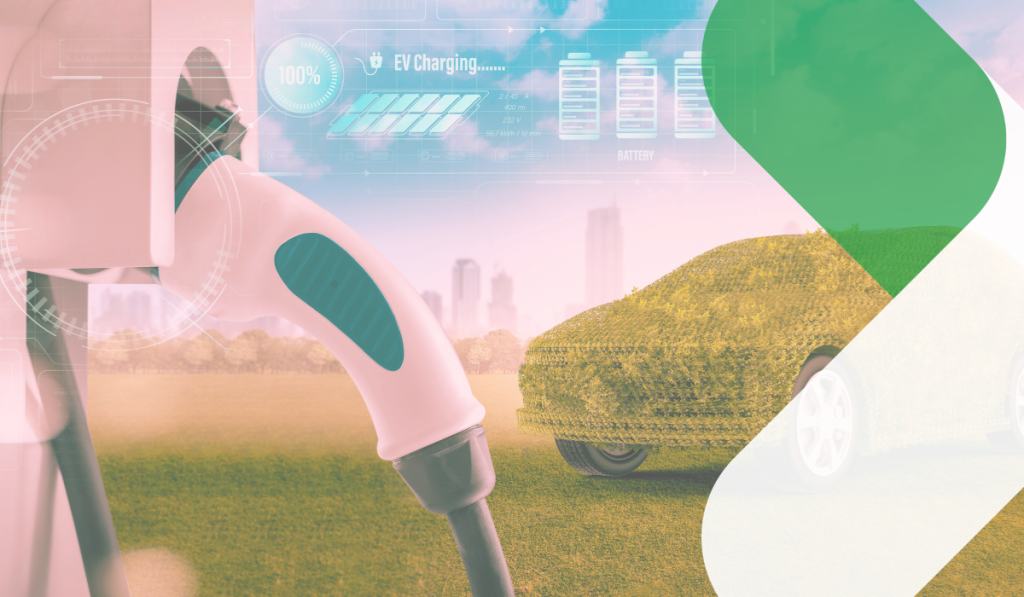
AI-Powered LiDAR: A New Era of Perception
How AI and ML enhance LiDAR technology by overcoming data processing challenges, enabling advanced applications in autonomous systems, robotics, and 3D mapping, and more.
Over the past ten years, the automotive industry has undergone a significant transformation. There has been an emergence of new propulsion systems, increased development in autonomous technology, and an unprecedented level of connectivity.
Consumers have become interested in features such as self-parking, OTA updates for performance enhancement, and advanced driver-assistance systems for safety. All these advancements are made possible using custom software. For new energy vehicle companies, in-house software development has been a critical aspect from the outset. On the other hand, established manufacturers are trying to keep pace with these developments.
The automobile of the future is evolving into a device that is both software-powered and connected to the cloud. The advent of centralized electronics architectures and standardized software platforms impacts the automotive industry. As a crucial part of the modern automotive value chain, Tier 1 suppliers provide advanced electronics integrated into vehicles. However, they are facing increasing challenges from technological disruption, changes in the value chain, and the growth of a new software market. To maintain relevance in the years to come, these suppliers must redefine their role in the industry.
Today’s vehicle manufacturers face significant challenges in terms of technological advancement, as well as new difficulties arising from traditional obstacles. Vehicle processing power and data flow capabilities must be significantly enhanced to handle the data generated by advanced driver assistance systems (ADAS), in-vehicle infotainment (IVI), information systems, and energy management.
As automation functionality advances, this processing workload will become even more demanding. The widespread connectivity in future mobility scenarios requires vehicles to communicate quickly and efficiently with other vehicles, infrastructure, and cloud services, while also being vigilant against cyber-security threats.
By addressing specific business demands and empowering organizations to work more quickly and intelligently, custom software can significantly increase efficiency and production in the automotive industry. Here are some examples of how the automotive sector might benefit from the adoption of customized software to increase production and efficiency:
By optimizing the flow of raw materials, parts, and completed goods via the supply chain, custom software can lower costs and shorten lead times.
Automating quality control procedures with custom software helps guarantee consistent quality while lowering the likelihood of errors.
By increasing productivity and lowering costs while increasing safety, custom software can help with maintenance and repair operations.
Organizations can improve decision-making and general efficiency by gaining essential insights from data with customized tools.
Automating quality assurance procedures with custom software helps guarantee consistent quality while lowering the likelihood of errors.
Custom software can create user-friendly and intuitive interfaces to push forward autonomous vehicles and EV evolution.
Custom software can give automotive businesses a competitive advantage in addition to these benefits. Organizations may set themselves apart from their competitors and offer their customers a better-quality product by creating software specifically tailored to their needs. Furthermore, because it is designed to address the unique demands of an organization rather than attempting to fit into a one-size-fits-all solution, custom software can be more affordable than off-the-shelf options.
Thanks to custom software development, enterprises can adapt their systems as their needs change. Pre-made solutions might not be able to handle updates and modifications, which would increase business expenses and downtime. Additionally, custom software creation gives businesses control over their data and systems, ensuring their security and protection from threats.
In addition to these advantages, custom software development can assist businesses in maintaining a competitive edge. Organizations may maintain their profitability and provide their clients with a better product by implementing the most recent technology and innovations into their systems. For instance, the Internet of Things (IoT) and other cutting-edge technologies can be combined with proprietary software to help businesses collect and analyze real-time data, enhance their decision-making, and become more competitive overall.
Last but not least, custom software development can enable enterprises to enhance their overall client experience. Organizations may increase customer happiness, loyalty, and retention by implementing features and functions that properly address the demands of their customers. Additionally, custom software development can assist businesses in better understanding their customers, allowing them to customize their services and offerings and providing clients with a more positive and enriching experience.
To reduce losses and improve quality, many OEMs and Tier 1 suppliers employ advanced technology to keep close tabs on a vehicle’s health and detect problems much sooner. This not only addresses warranty claims but also helps to build stronger customer relationships. By offering new services directly to end-users through software updates over the air throughout the vehicle’s entire lifespan, OEMs and Tier 1s can retain customer connections that might otherwise have been lost to third-party providers.
Let’s take Tesla as an example. The company sells its insurance, collects vast amounts of data, and uses AI technology to analyze that data and create over-the-air updates that deliver quality improvements and new services to customers steadily and effectively. This approach not only enhances the value of the vehicle but also increases customer loyalty and improves Tesla’s profitability.
Many companies offering complementary products and services are coming together, resulting in significant synergy and boosting sales while reducing costs. Another notable example is Toyota Motor Corporation. In June 2018, the world’s most profitable car manufacturer invested 1 billion dollars in the Singapore-based ride-hailing service Grab, gaining access to its mobility data and allowing Toyota to shift from being a manufacturer of assets to a provider of mobility services. This partnership also led to the most extensive initial public offering in Asia, as Grab went public at a 40-billion-dollar estimate.
With over 80 years of history, the Romanian automotive industry has seen sustained growth and was estimated to be worth $30 billion in 2019. The sector boasts two original equipment manufacturers, Renault Dacia and Ford, and attracts international investment from companies such as Bosch and Porsche Engineering.
The 2021 EY Attractiveness Survey in Romania placed Timisoara as one of the top 3 cities for foreign direct investment, accounting for 11% of FDI projects, following Bucharest with 33% and Cluj with 12%. Porsche Engineering, a subsidiary of the renowned car manufacturer Porsche, was one of the first companies to take advantage of the opportunities in Timisoara. They opened their second Romanian branch, an R&D center, intending to expand their network of innovation centers and create smart, connected cars of the future.
At Rinf.tech, we have a robust Automotive Software Development Business Unit in Timisoara that offers custom development services to prominent Original Equipment Manufacturers (OEMs) and Tier 1 suppliers. Based on our extensive experience, we have found that the following project types are highly sought after for outsourcing by automotive companies:
OEMs and Tier 1 suppliers in the automotive industry can gain several cost-effective and strategic advantages from custom software development. Organizations can enhance their effectiveness, competitiveness, and customer experience while lowering costs and raising overall productivity by developing software specifically suited to their needs. Custom software development will continue to be essential to the success of OEMs and Tier 1 suppliers, given the industry’s ongoing need for new technologies and improved procedures.

How AI and ML enhance LiDAR technology by overcoming data processing challenges, enabling advanced applications in autonomous systems, robotics, and 3D mapping, and more.

Offering insights into how the latest AI advancements will impact consumers, manufacturers, and the broader environment in 2025 and beyond.

Showcasing the environmental and economic benefits of integrating sustainable materials and robust recycling practices into the automotive value chain.
Copyright © 2023 rinf.tech. All Rights Reserved.
Terms & Conditions. Cookie Policy. Privacy Policy.
Politica Avertizari de Integritate (RO)